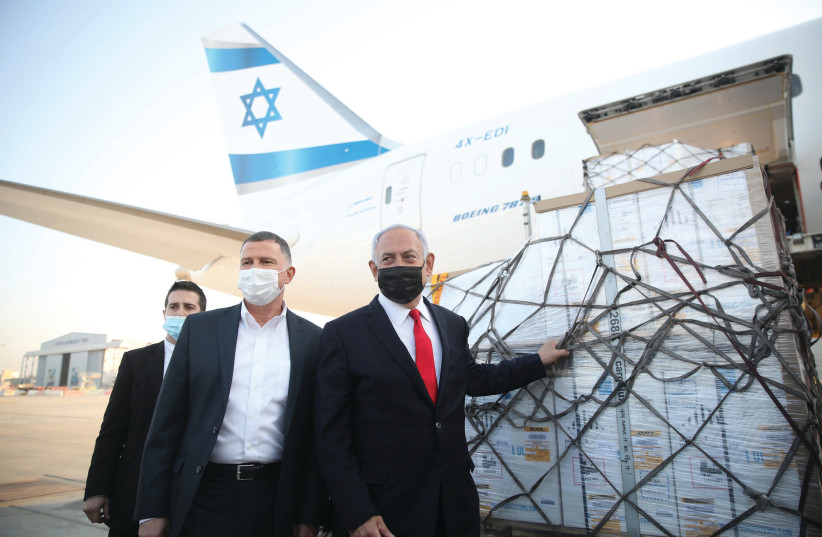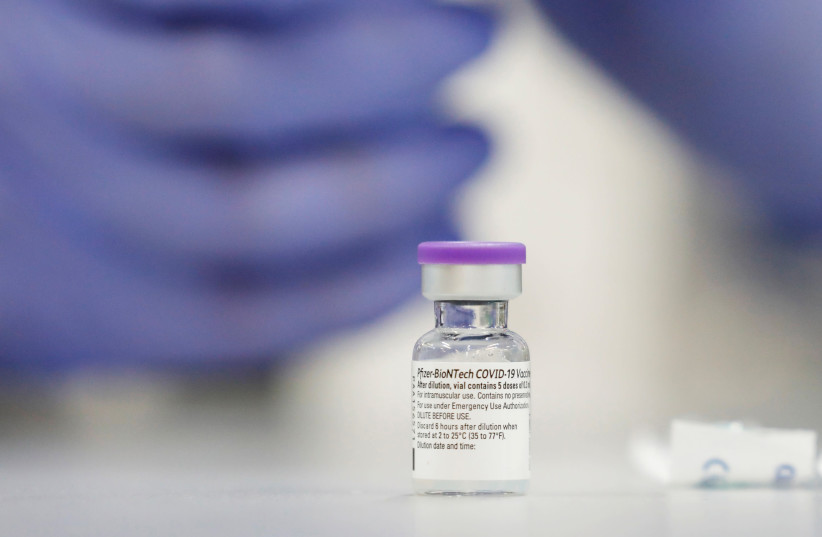It is not uncommon to see Israeli diners cling their cups together in l’chaim to the Pfizer COVID-19 vaccine. They know they would not be out at a restaurant or bar without the company’s elixir that, even as cases are once again rising, has allowed Israel to stay open.
Pfizer has shipped billions of doses of its vaccine to those who wanted and could afford it in the US and around the world. The company recently said it expects sales of the vaccine to hit almost $34 billion this year. But Israel was the first to fully benefit from the company’s innovation.
At Pfizer’s helm is a Jewish man from Thessaloniki, Greece: Albert Bourla.
See No. 3: America's COVID Warrior
See No. 5: Intel Czar
See full list
Download full magazine
See 2020's list
Bourla has said that he chose to gamble on Israel because of its small population and its sophisticated data collection system.
Greece was an option, but its electronic medical record-keeping was not up to scratch, he said in August in an interview with the Financial Times. The company also considered Sweden, but Bourla told FT he was worried about upsetting other European Union countries.
“The biggest thing that became clear was Bibi [Netanyahu] was on top of everything, he knew everything,” Bourla said. “He called me 30 times, asking: ‘What about young people… What are you doing about the South African variant?’ I’m sure he was doing it for his people, but I’m also sure he was thinking: ‘It could help me politically.’”

But even as Netanyahu did not win the election and Israel received a new prime minister in Naftali Bennett, Bourla said that Netanyahu “did it very well.”
How did Pfizer become the first mRNA vaccine maker in the world, achieving Emergency Use Authorization from the Food and Drug Administration even before Moderna? On August 23, the FDA granted its coronavirus vaccine full approval.
The mRNA vaccines are proving to be the most effective and still safe. Others, such as AstraZeneca, Johnson & Johnson or Sinovac work, but are proving less effective – especially against variants.
Those who work at Pfizer told The Jerusalem Post that Bourla receives much of the credit. He challenged Pfizer scientists, manufacturing colleagues and employees across the organization to develop and deliver a vaccine in record time. He said, “if not us, then who?”

“The principle was that we must do it,” Bourla said in an interview with CNBC. “If we wouldn’t be able to have a solution by the time that it was needed, then we will be facing way worse problems around the world than us losing $2b.
“So, when I saw it from that aspect, it was a very easy call,” he continued. “We will go all in. If we lose because we failed to produce a solution, the company will not go down. It will be painful, but will not go down. But on the other hand, the company will be remembered because we did the right thing.”
Bourla never expected for the vaccine to be as successful as it has become. He learned about the breakthrough in a Zoom meeting with Pfizer’s general counsel and two statisticians.
“I heard the 95%, which I didn’t believe, I thought I didn’t hear it well,” Bourla told FT.
“If mRNA had failed, I think we would have been in a very, very difficult spot right now,” he said. “We would need to vaccinate way more people to get the same result, in many cases 40% to 50% more.”
Bourla has been with Pfizer for 25 years. He started in the company’s Animal Health division in 1993, working his way up through several global and senior positions. He served as Pfizer COO before becoming CEO in January 2019 – less than one year before the coronavirus crisis began.
A company spokesperson said that their boss encourages them to “take bold moves that help us achieve our purpose of delivering breakthroughs that change patients’ lives.”
COVID-19 showed Pfizer staff that Bourla was correct: The company is capable of delivering these kinds of breakthroughs.
Bourla attributes some of his success to growing up among Holocaust survivors who were not afraid to tell their stories. His mother and his father narrowly escaped persecution by the Nazis.
His father’s parents and two of his three siblings were among the tens of thousands of Sephardic Jews from Thessaloniki who died during those years. His mother was imprisoned and nearly murdered by a firing squad.
Before the Holocaust, there were around 55,000 Jews living in Greece. Some 95% were executed.
He told FT that his mother would recount the story of her near-death – “a story of horror but given with humor.”
Bourla doesn’t talk too much about his family’s background, but in an interview published in The New York Times he shared more than usual. He told the Times that his mother would say that she was “in a worse position once, and now I have you and your sister. Life is miraculous. Nothing is impossible.
“That was the spirit of her,” he said. “And she inspired me to be the same.”
He added in that interview that “my mother believed you can do anything in life. That there’s always a way. The way may not be clear in the beginning, but there is always a way. I owe her a lot because of that. She is my role model.
“What I got from my dad was to identify what can go wrong.”
